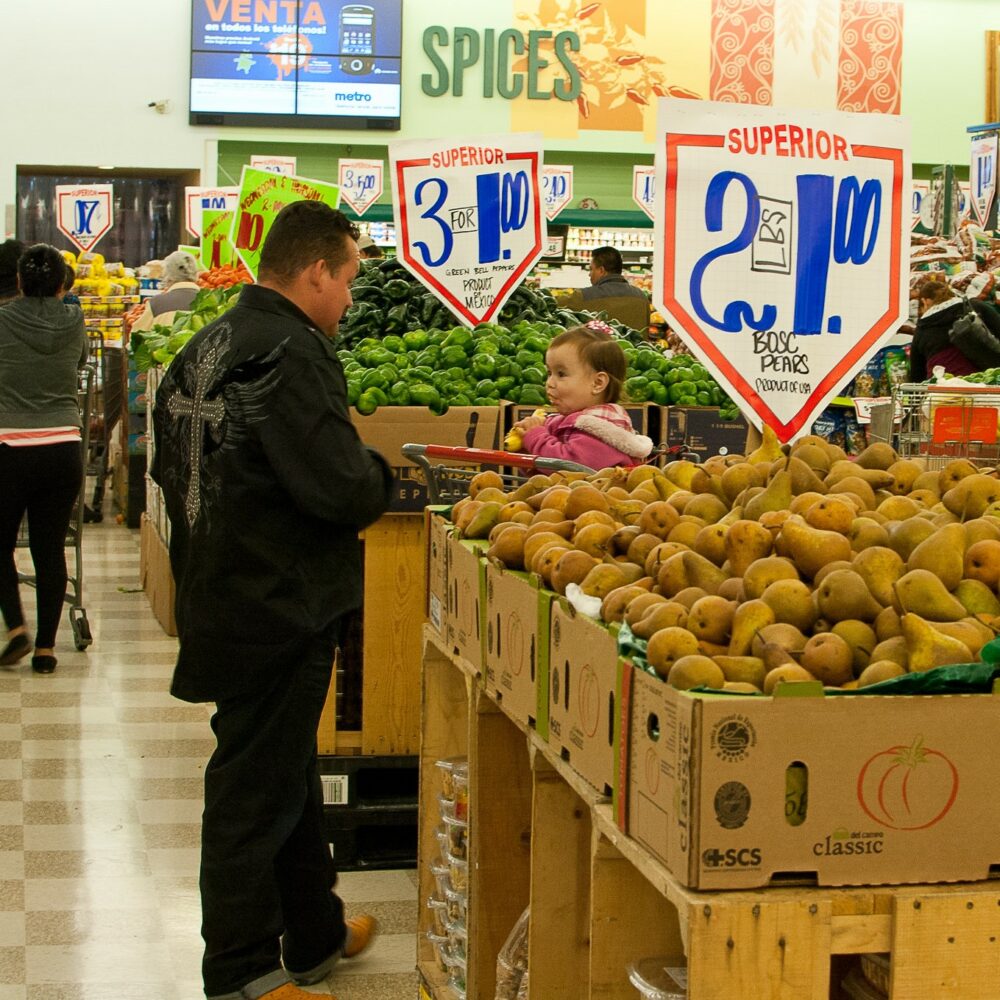September 27, 2023
The California Association of Food Banks estimates that 31% of people in Los Angeles County do not have enough to eat. The actual figure may be even higher according to a USC Dornsife Center for Economic and Social Research survey, which found that as many as 37% of low-income Angelenos experienced food insecurity in 2022.
These numbers paint a grim picture of rising food insecurity in Los Angeles and beyond, especially for people of color and their children. However, Congress will be able to reverse course this fall and reduce hunger for low-income individuals, as well as families and their children, through the “Farm Bill,” which is set to expire at the end of September.
Reauthorized every five years, this piece of federal legislation determines agricultural subsidies, conservation programs and new farm policies, and major provisions for the Supplemental Nutrition Assistance Program (SNAP) that provides 40 million Americans with food-purchasing nutrition assistance. SNAP accounts for 81% of the Farm Bill’s total spending.
However, this year has set a foreboding precedent for anti-hunger policymaking. In March, the federal government ended the expanded SNAP benefits implemented at the beginning of the COVID-19 pandemic. More recently, Congress increased work requirements and time limits for accessing SNAP benefits.
The resulting hunger cliff has led to a dramatic and sudden drop in the value of food benefits across the country. In California, the average enrollee in CalFresh, the state’s SNAP program, received $214 a month in nutrition assistance during the pandemic. Today, those same benefits have been reduced to $179 a month — a scant $6 per person per day. Rising inflation rates have only exacerbated the effects of these reductions — since August 2022, food prices in L.A. County have increased by 4.1%, stoking demand on local food banks and CalFresh.
Nutrition assistance programs are a vital element of the social safety net. In addition to offering immediate benefits to health and well-being by reducing food insecurity among beneficiaries, these programs also promote longer-term economic security. Notably, 35% of infants in L.A. County are enrolled in CalFresh prior to their first birthday — highlighting the significance of this program for young children and their families.

According to the California Budget & Policy Center, almost 12% of Californians lived in poverty in 2021; without CalFresh, that figure would have been 2.6 points higher. Congress has the obligation to ensure that young children and their families are not left behind in partisan debates on the Farm Bill by reinforcing the understanding of the intangible, long-term, value in alleviating food insecurity and deep poverty beginning in early childhood.
A working paper published by the Washington Center for Equitable Growth found that receiving nutritional assistance during childhood substantially reduced adult poverty by as much as five percentage points. The greatest reductions in poverty — seven percentage points — were found among Black adults, demonstrating the critical role nutrition assistance plays in reducing inequities across racial and ethnic groups, as well as breaking intergenerational cycles of poverty.
First 5 LA has continuously advocated for nutrition assistance programs that are crucial in supporting families, many of whom are struggling with the heightened poverty and racial inequities resulting from the COVID-19 pandemic. Allowing pandemic-era enhanced nutrition benefits to expire, while inadequately funding programs vital to child development and family economic well-being, is a lamentable policy regression that will push families to make devastating tradeoffs in the face of rising living costs.
The upcoming reauthorization of the Farm Bill offers Congress the opportunity to expand food access for children and families. By maximizing SNAP benefits and reducing eligibility barriers for nutrition assistance programs, lawmakers can ensure that California’s children and families continue to get the vital support they need.






